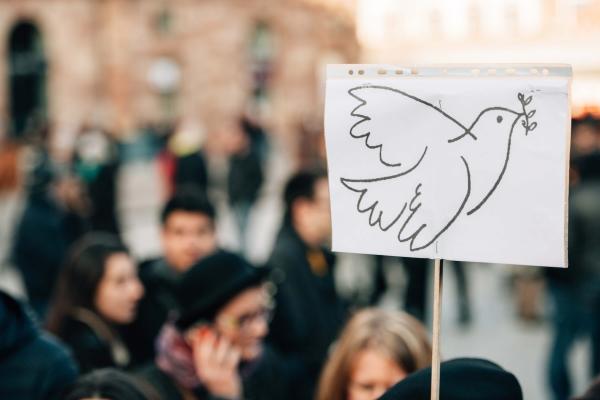Mar 13, 2019
Could the United States ever do something so heinous that it would become morally necessary for a foreign military to drop bombs on my house? This is the question that was running through my mind on November 11, 2018, when Montclair Presbyterian Church in Oakland, Calif. —a congregation of around 250 souls who were kind enough to invite me to be their pastor five years ago — voted overwhelmingly to embrace pacifism by declaring itself to be a peace church.
Read the Full Article

Already a subscriber? Login
